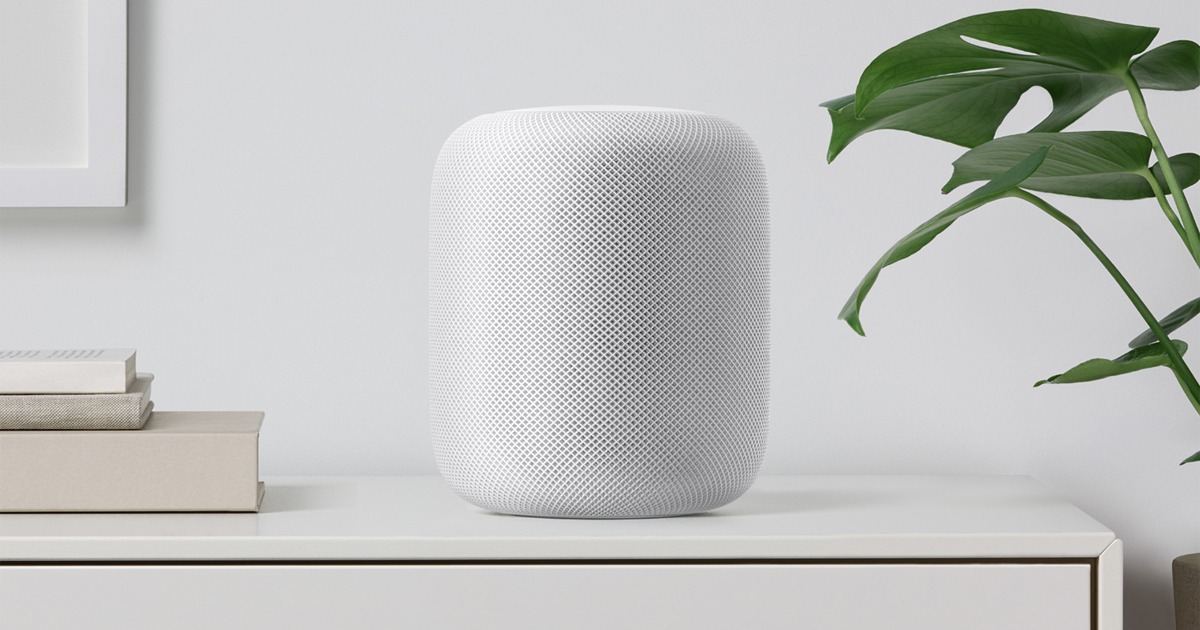Apple has had music at its heart since the iPod. With the HomePod coming this year, let's take a look at how Apple can improve this device and how it stands in Apple's history.
For those who remember, the iPod Hi-Fi was released in early 2006. It was a speaker that you would plug in an iPod and enjoy music in your home. Steve Jobs said when he introduced it that the iPod was an on-the-go device. But Apple wanted to expand to home audio. It ultimately flopped and was discontinued less than two years later. Fast forward eleven years, and we have the HomePod. This time, the playing field has changed. I have emphasized how music is now in the cloud and not in our pockets. HomePod requires no device plugged in to it, untethering your device. Yet, despite this, I believe HomePod will not do as well as Apple hopes (at least not in its current state) and will ultimately be remembered as iPod Hi-Fi 2. Why?
First, the iPod may have caused the downfall of both of these products. People like to listen to their music using headphones, even if its in their own houses. Maybe it's just me, but do people really sit down in their houses anymore and listen to music for extended periods of time? If so, do people do it frequently enough to justify $349 speaker purchases? People have families and neighbors that will be disrupted by loud music. Personally, I don't think either of these products accomplished anything normal headphones will. Plus, headphones can be taken anywhere. These products don't even have batteries to take to a get-together.
What about price? iPod Hi-Fi was priced at $349. HomePod is priced at $349. Need I say more? You can't justify the price by saying Echo is $200 and a good speaker is $300 so a combination would cost $500. That's not how anything works. By that logic, the original iPhone probably would only be owned by seven people in the world. I'm no audiophile, but I love the speaker quality of the Amazon Echo (not the Echo Dot). For less than $200, I'm getting a great speaker (if I ever even need to use it), plus an amazing assistant that works well. Which brings me to my next point.
Apple, come on. You can't just announce you're adding translations and a few other trinkets to Siri and call it a day. You're getting beat up in the ring with Alexa and Google. You're grating on the nation's last nerve with your classic "but I found this on the web" bit. A Bing search isn't going to get you anywhere.
So, why do Google Home and Amazon Echo work? They don't put a huge focus on music. They focus on the experience. Those little moments when you ask your family a random trivial question that no one knows the answer to, but then you ask Alexa and she tells you. That's why we buy these smart speakers. We disregard the fact that we have a microphone recording us constantly for that, and we love it. And now, Google Home and Amazon Echo are even replacing the home phone with their products, which I love! It's genius, and it's something I wanted Apple to do long ago.
Keep in mind that the Amazon Echo and Google Home don't take away from your phone's experience. What you can do on Apple HomePod, can easily be accomplished on your iPhone. Amazon Echo has a full marketplace of skills that are tailored to the Echo's capabilities and Google Home has a growing library of apps too. Apple HomePod hasn't even opened up third-party support. In fact, I don't think it can even do everything iOS Siri can do because it lacks a proper screen.
Finally, let's talk design. I don't know what you were thinking when you released this Apple, but no one likes it. We know Jony Ive did not work on this. It looks like a roll of toilet paper. It seems way too compact as well. People were expecting it to look like the Mac Pro. A smart speaker should be tall and sleek. It gives off an impression that it's loud but can also listen well from its vantage point. When you're only putting it in one position forever, no one cares how small it is.
With all of that being said, I do love the features that AirPlay 2 brings, but that will be available on Apple TVs and other speakers that are likely less expensive. I personally believe it's a rushed piece of technology after the smart speaker market became viable and mainstream. There's not much I like about the HomePod, but I hope Apple learns from it.

No comments:
Post a Comment
Please keep comments constructive and don't use any foul language. Feel free to share your ideas, feedback, experiences, and more. Please know that I will read them. Thanks!